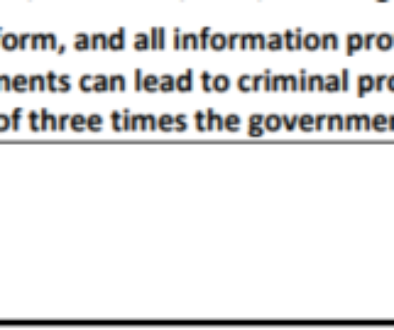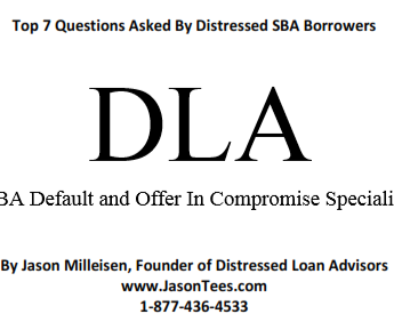I recently had a debate with a client about the composition of his personal financial statement. It went something like this:
1) The first point we debated was whether it’s appropriate to list his retirement savings on his personal financial statement. His theory was that since the form didn’t specifically ask about his 401k, then he was under no obligation to list it. He also argued that since funds that are held in designated retirement accounts are generally shielded from creditors, there was no reason to list it.
My Response: The SBA clearly wants to know about any and all assets, regardless of whether they can be levied by creditors or not. It was clear to me that in this situation, it would be disastrous to omit his 401k from the PFS since his paystub (which was required as part of the OIC) showed that he was making monthly contributions. Once a lender discovers that you’ve omitted your 401k from your PFS, they will question whether you are negotiating in good faith. Since the SBA does ask the bank if you’ve been cooperative, your attempt to omit a major asset could hurt your chances for a settlement approval.
The second point he tried to argue was that since he would be borrowing against his 401k to fund the settlement, that it was technically a liability, not an asset.
My Response: While I can appreciate your desire to spin the situation, that is factually not correct. Since you’d be borrowing against the 401k, it would simply be borrowing against an asset. Since the SBA requires you to state the source of the OIC funds, to omit the 401k would mean you are not being accurate when stating the source of the settlement funds.
Overall, I understand my clients temptation to leave his most valuable asset off the PFS, so as to improve his chances that his OIC will be approved. That said, intentionally misrepresenting your situation is never something I’d advocate. Bankers are smart, and they have tools at their disposal that will allow them to determine if you’ve left assets off your PFS. So the lesson, as always, is that when submitting your OIC you should be honest and tell the truth!


